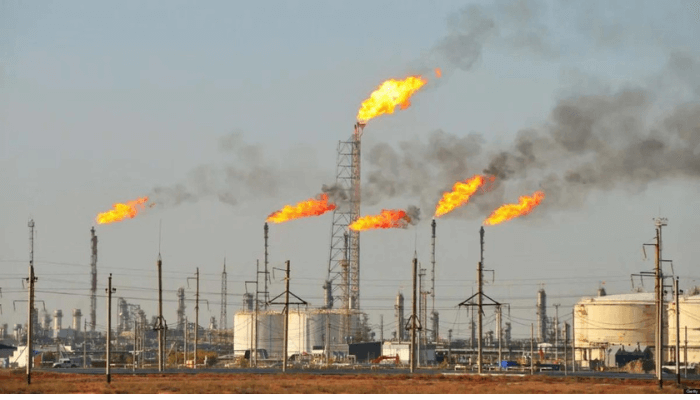Major oil and gas companies in Europe, following a trend set by their US counterparts, are prioritising short-term profits from fossil fuels over ambitious climate goals.
Until recently, large oil companies tended to stay quiet when governments and activists urged them to accelerate the transition from their products to alternative energy sources. Now, this is changing.
Read also: Nigeria oil fields jump to 246 on investor response to PIA – NUPRC
At the CERAWeek, the world’s premier energy conference in Houston, this change was especially visible, with several CEOs of oil majors openly calling for a rethink of the transition and caution in the rush to give up oil and gas, which is unlikely to happen anytime soon.
For instance, big oil companies including British Petroleum and Equinor have written down renewable energy projects while Shell has weakened some of its climate targets, ditching a 2035 greenhouse gas emissions reduction target even as it maintained a net zero goal by 2050.
“We should abandon the fantasy of phasing out oil and gas, and instead invest in them adequately,” Amin Nasser, Saudi Aramco CEO said at the energy event.
Nasser added that wind and solar are yet to prove themselves as adequate replacements for oil and gas in terms of cost.
Nasser noted that oil demand, whose demise has been predicted repeatedly, was going to once again hit a record this year despite those predictions.
“Despite the growth of electric vehicles, solar and wind power, oil demand this year will reach a new record of 104 million barrels per day this year,” Nasser said.
Other oil CEOs echoed Nasser’s view.
Wael Sawan, CEO of Shell pointed to European government bureaucracy as slowing needed development. Jean Prates, Petrobras CEO said caution should overrule haste. Darren Woods, Exxon Mobil CEO also said regulations governing clean fuels have still not been resolved.
“The world population is going to increase by about 25 percent between now and 2050, but energy demand will increase faster than that,” Sheikh Nawaf al-Sabah, the chief executive of Kuwait Petroleum Corporation, said at CERAWeek.
Findings showed oil and gas companies are reinvesting record profits from the fossil fuel price surge driven by the Ukraine war to intensify the hunt for new deposits despite repeated calls by the United Nations to phase out hydrocarbons to avoid a climate crisis.
Data and industry executives found the exploration revival responds to pressure from a majority of investors to maximise their oil and gas profits rather than invest in lower-margin renewable energy businesses.
An analysis of data from oil services firm Baker Hughes showed the number of offshore drilling vessels used to explore and produce oil and gas recovered last May to pre-pandemic levels, rising by 45 percent from October 2020 lows.
Wood Mackenzie analysts predicted a continued increase in activity, forecasting offshore exploration and drilling activity to grow by 20 percent by 2025.
The UK-based research and consultancy group also predicted the commitment of up to $185bn to develop 27 billion barrels of oil reserves with international oil companies focused on the higher-cost, higher-return deep-water developments.
Nambia, which has yet to produce any oil and gas, attracted strong interest after Shell and TotalEnergies made discoveries off the coast of the Southern African country.

